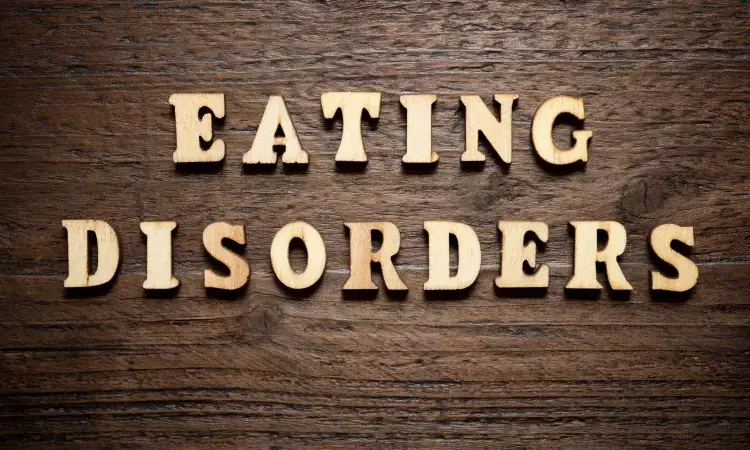- Home
- Medical news & Guidelines
- Anesthesiology
- Cardiology and CTVS
- Critical Care
- Dentistry
- Dermatology
- Diabetes and Endocrinology
- ENT
- Gastroenterology
- Medicine
- Nephrology
- Neurology
- Obstretics-Gynaecology
- Oncology
- Ophthalmology
- Orthopaedics
- Pediatrics-Neonatology
- Psychiatry
- Pulmonology
- Radiology
- Surgery
- Urology
- Laboratory Medicine
- Diet
- Nursing
- Paramedical
- Physiotherapy
- Health news
- Fact Check
- Bone Health Fact Check
- Brain Health Fact Check
- Cancer Related Fact Check
- Child Care Fact Check
- Dental and oral health fact check
- Diabetes and metabolic health fact check
- Diet and Nutrition Fact Check
- Eye and ENT Care Fact Check
- Fitness fact check
- Gut health fact check
- Heart health fact check
- Kidney health fact check
- Medical education fact check
- Men's health fact check
- Respiratory fact check
- Skin and hair care fact check
- Vaccine and Immunization fact check
- Women's health fact check
- AYUSH
- State News
- Andaman and Nicobar Islands
- Andhra Pradesh
- Arunachal Pradesh
- Assam
- Bihar
- Chandigarh
- Chattisgarh
- Dadra and Nagar Haveli
- Daman and Diu
- Delhi
- Goa
- Gujarat
- Haryana
- Himachal Pradesh
- Jammu & Kashmir
- Jharkhand
- Karnataka
- Kerala
- Ladakh
- Lakshadweep
- Madhya Pradesh
- Maharashtra
- Manipur
- Meghalaya
- Mizoram
- Nagaland
- Odisha
- Puducherry
- Punjab
- Rajasthan
- Sikkim
- Tamil Nadu
- Telangana
- Tripura
- Uttar Pradesh
- Uttrakhand
- West Bengal
- Medical Education
- Industry
Body Dissatisfaction primary cause of eating disorders at any age including during perimenopause

Eating disorders are stereotypically associated with adolescents and young adults. Growing evidence, however, suggests that these conditions can occur at any time during a woman's lifespan, including at midlife.
Researchers have found in a new study that body dissatisfaction is a primary cause of eating disorders, especially during perimenopause.
Study results are published online today in Menopause, the journal of The North American Menopause Society (NAMS).
Eating disorders are serious mental health conditions characterized by disturbances in eating behavior and body image that occur in approximately 13.1% of women across the lifespan. The prevalence of any eating disorder specifically for women aged older than 40 years is roughly 3.5%, with specific symptoms such as dissatisfaction with eating patterns being documented as high as 29.3%.
Serious complications such as high mortality and morbidity are associated with eating disorders. These adverse health events are likely to be magnified when present at older ages. However, few studies on eating disorders have included participants at midlife, including premenopause, perimenopause, and postmenopause.
There is some evidence that supports the idea that perimenopausal women have the highest rates of dysregulated eating behaviors (eg, weight-control behaviors such as regular counting of calories or consumption of diet foods) of any reproductive stage at midlife and are significantly different from premenopausal women with regard to body dissatisfaction and feelings of fatness. Although findings such as these remain scant; the association between eating disorders and symptoms of perimenopause (eg, negative mood, depression, and fatigue) confirm that perimenopause may be a particularly risky time for eating pathology.
In this new small study, which sought to investigate the structure of eating disorder symptoms specifically during perimenopause and early postmenopause, the researchers used network analysis statistical models to compare the structure and importance of specific eating disorder symptoms across reproductive stages. Although they admit that larger studies are necessary with this underrepresented female population, the researchers believe that the study confirms that dissatisfaction with body image is a key risk factor for eating disorders across the lifespan, especially at midlife.
Study results are published in the article "Network analysis of eating disorder symptoms in women in perimenopause and early postmenopause."
"This study shows that, similar to studies in young adults, dissatisfaction with body image remains a core feature of eating disorder pathology in midlife women. Specifically, fear of gaining weight and fear of losing control over eating habits are central symptoms of eating disorders in perimenopause and early postmenopause. These findings may help direct more targeted treatment strategies in women during midlife," says Dr. Stephanie Faubion, NAMS medical director.
Reference:
Finch, Jody E., Xu, Ziqian, Girdler, Susan, Baker, Jessica H., Network analysis of eating disorder symptoms in women in perimenopause and early postmenopause. Menopause ():10.1097/GME.0000000000002141, January 17, 2023. | DOI: 10.1097/GME.0000000000002141
Dr Kamal Kant Kohli-MBBS, DTCD- a chest specialist with more than 30 years of practice and a flair for writing clinical articles, Dr Kamal Kant Kohli joined Medical Dialogues as a Chief Editor of Medical News. Besides writing articles, as an editor, he proofreads and verifies all the medical content published on Medical Dialogues including those coming from journals, studies,medical conferences,guidelines etc. Email: drkohli@medicaldialogues.in. Contact no. 011-43720751


